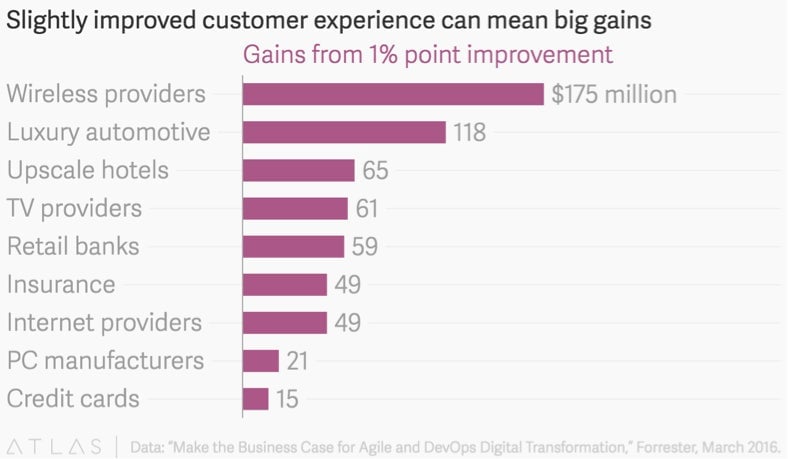How digital business transformation extends beyond the IT department
Across all industries, digital disruption is no longer a hypothetical—it’s reality. Digitization is changing the way products are made, marketed, and delivered, altering consumers’ behavior and expectations in turn. These changes are unlike anything the world has seen since the Industrial Revolution. Those who don’t adapt will be left behind.


Across all industries, digital disruption is no longer a hypothetical—it’s reality. Digitization is changing the way products are made, marketed, and delivered, altering consumers’ behavior and expectations in turn. These changes are unlike anything the world has seen since the Industrial Revolution. Those who don’t adapt will be left behind.
The good news is, now more than ever, business leaders, in partnership with their IT department, have the power to transform their companies by using technology to gain an advantage in the market and defend against attacks from emerging competitors. One of the most important steps in this transformation is extending the concept of digital disruption beyond the IT department and into business operations.
When digital change is limited to IT departments, customers and employees in the organization rarely notice it. These under-the-hood adjustments can be helpful, but in many cases, they simply aren’t enough to induce the holistic change that’s necessary for today’s businesses. For transformation to take root, the seeds of digitization must be sown across three main areas of business operations: customer experience, products and services, and core operations.
Doing business today means meeting the expectations of tech-savvy customers—think fast transaction times and frictionless interactions facilitated by mobile check-ins, one-click sign-ups, and instant online approvals. Through digital tools like recommendation algorithms, customer service chatbots, and user profiles, digitization can help improve the customer experience by gathering and analyzing large amounts of consumer data. In doing so, businesses can tailor their offerings at an unprecedented level and anticipate the customer’s future needs.

After customer experience comes products and services. Even the most traditional consumer products, such as watches, cars, and small appliances, are being digitally enhanced. Equipped with advanced sensors that enable remote feature updates, personalization, and responsive behavior—such as a smart vehicle learning the best route home to avoid traffic—these products are becoming services unto themselves. What’s more, data collected by smart objects presents organizations with a wealth of feedback that can accelerate production and improvements.
Finally, a digital overhaul of core operations aligns the entire business around the idea of transformation, creating an environment that’s optimized for agile responses and adaptation. Many basic tasks, including routine maintenance, can be automated, saving time and expense. And just as digital technology improves consumer products, it improves industrial equipment—sensors and smart machinery work together to reduce waste, eliminate risk, and identify potential efficiency gains.
As with any change, digitization may inspire some to fear that people will be replaced by technology. But while robots may take over some jobs, digital technology will more likely allow people to work faster and better. From assuming dangerous physical work and onerous repetitive tasks to quickly processing large quantities of information, these automated tools will allow people across professions to gain better insight into their work, their company, and their industry.
The wholesale transformation of business operations via digital technology requires bold vision and ongoing action. But there’s a huge payoff: Better protection from the next hot start-up that wants to disrupt your business, and a strong, flexible foundation that will ensure growth in the future.
See how Hewlett Packard Enterprise is working to help drive digital transformation within business operations, and download the full report here.
This article was produced on behalf of Hewlett Packard Enterprise by Quartz creative services and not by the Quartz editorial staff.